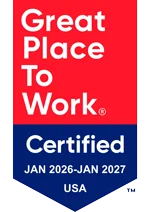Throughout 2025, Short-term rental regulations in Australia have become a focal point for landlords, thanks to the surging popularity of holiday rentals on platforms like Airbnb and Stayz.
As more owners list properties for short-term stays, authorities now require some form of licensing or compliance documentation; however, the rules vary widely by state and council.
In this guide, we break down the basics of holiday letting permits and provide a state-by-state compliance guideline. You'll also explore the penalties for non-compliance and tips to avoid fines and maximise your rental strategy.
How the license to run a holiday rental in Australia works
The requirements for a holiday letting permit in Australia depend on where your property is located. Below are the factors that trigger the need for licensing or registration, common compliance steps for hosts, and the penalties for not following the rules.
What triggers the need for licensing/registration
When running a holiday rental in Australia, check these key triggers:
- Owner-occupied vs unhosted short stays: Entire properties (not your primary residence) must be registered. NSW and WA require STRA registration before any listing goes live.
- Short-term lease duration: Regions like Perth now require development approval for un-hosted rentals over 90 nights/year; NSW sets a 180-night cap in Greater Sydney.
- Primary residence vs investment property: Home-sharing your principal residence is often exempt, but renting out a separate holiday property usually requires full compliance or Registration.
- Location: Some areas are affected by overlay zones (e.g., heritage precincts) or apartment bylaws that can prohibit or restrict short-term rentals (STRs), regardless of state policies.
Standard requirements for holiday rentals
Here are the typical compliance steps hosts must meet, varying by jurisdiction:
- Local council planning/development approval: Needed for un-hosted rentals exceeding night caps (in Perth, Noosa, or some VIC councils).
- Fire and safety compliance: Install smoke alarms, fire extinguishers, and evacuation signage, and adhere to occupancy and noise standards.
- Permit/ID visibility: Always display your permit or registration ID in all listings when required by state/council rules.
- Tourism levies and taxes: Some Local Government Areas (LGAs), such as Frankston and Warrnambool Shire, charge accommodation or tourism taxes, which must be paid to remain compliant.
- Insurance and strata rules: Apartment buildings require strata approval, and as the host, you must carry valid short-stay insurance to avoid liability issues.
Penalties for non-compliance
Failing to follow regulations can result in severe consequences. These include:
- Fines & notices: Noosa Council often issues fines for non-compliance with STR regulations, while NSW enforces penalties of up to $ 220k for individuals and $1.1 million for companies for serious breaches.
- Listing deactivation: Airbnb, Stayz, and other platforms can deactivate unregistered or unsafe listings (e.g., in Tasmania and NSW).
- Court orders or bans: Exceeding night caps or ignoring planning rules may result in enforcement notices or eviction from STR use.
- Insurance avoidance: Operating without compliance can invalidate your policy, leaving you liable for property damage or guest injury.
State-by-state licensing to run a holiday rental in Australia
Holiday rental rules differ by state and even council. The table below summarises licensing and permit requirements, nightcaps, and key compliance notes for each Australian state (and territory) as of 2025:
Common licensing pitfalls and how to avoid fines
Navigating all the STR rules by the council in Australia can be a tall order. However, you must understand and adhere to all these legal requirements to avoid pitfalls. Here are the mistakes to watch out for:
Not checking the local council overlay/zoning
Your state might allow STRs, but local overlays (like Hobart's Battery Point Heritage precinct) could ban them entirely. Always review council planning maps and zoning rules before listing. If restricted, seek council approval or remove the listing to avoid fines or stop-work orders.
Listing unregistered properties on Airbnb
States such as New South Wales (NSW) and Western Australia (WA) mandate registration before listing. Platforms now verify host IDs and delist non-compliant properties. To comply, please register first—platform registration IDs (e.g., STRA) must be included on every listing.
Exceeding nightcaps without knowing
Councils like Byron Shire enforce night caps (e.g., 60 days/year for non-hosted homes). Violations risk fines of several thousand dollars. Track booked nights closely and switch to hosted stays or apply for exemptions if you exceed caps.
Not displaying registration ID on listings
NSW, WA, and some VIC councils require your official ID to be visible in all listings. Missing this can result in delisting or fines. Always insert your permit ID in the listing description or license field.
Not meeting fire safety or insurance obligations
Regulations mandate smoke alarms, fire extinguishers, evacuation signage, and suitable insurance cover. Failure to comply may void policies and result in liability. Follow the STRA fire safety checklist and hold valid public liability insurance before hosting.
How do you maximise your holiday rental strategy?
Securing the holiday letting permit in Australia is only half the battle - success also depends on how well you position your rental in a changing market. That’s where smarter tools come in.
Sign up with Beyond's free short-term rental data tool to see how your property stacks up. You’ll get tailored insights on pricing, occupancy trends, and seasonality, helping you adjust rates and attract the right stays within your area’s limits.
%20(1).png)
Remember, an innovative strategy powered by the right tools will keep your holiday rental business thriving in a compliant and sustainable way, even as rules tighten across Australia.









